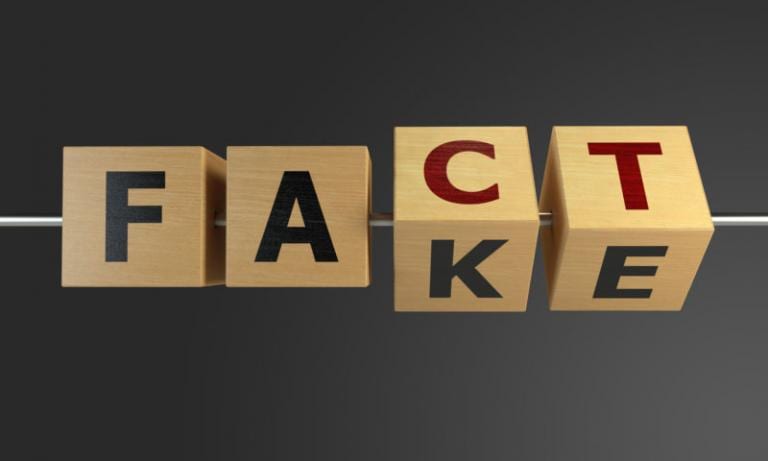I moved to New York City 5 years ago from the far suburbs of Philadelphia. In my due diligence to prep for this massive move, I was reading about the differences between cities. One piece suggested that each major city has a unique culture that can be summarized in a single word. For Boston, it is learning. L.A. is fame. Washington, D.C., power. And New York, my new home, the summary term is ambition.
Like all the skyscrapers in midtown Manhattan fighting with each other to reach the sun, New York is jammed with business people, financiers, fashion designers, media professionals, artists, and entrepreneurs who are trying to make their mark on the world. All are walking and talking fast, desperate for the opportunity that will put them over the top.
After living in New York for a few months, we had brunch with friends who had lived there for six years. We naturally divided into two conversations, my wife with my friend’s wife, and my friend and I. He asked how it was going. All the logistics had been going well—the required downsizing, the no-car culture, work, kids in school, etc. But at a visceral, emotional level, something was stirring. I leaned across the table and said: “I love it here, but I always feel behind.”
“Everywhere I look, there seems to be someone who is ahead of me — the person who lives on a higher floor (the higher the floor, the higher the rent). The well-dressed business guy is getting a black car outside our building while I wait in line in the rain to take the bus to the subway — the connections who always seem to be on an airplane while I am stuck in the city. Everyone I know seems to have written a book! I feel behind.”
For me, this raises the question of ambition: specifically, how much should I strive to be more recognized and have more money. And from my work with clients, I know they are also wrestling with questions of striving and achievement, ambition, and contentment. This is true in New York, the city that was built on the insatiable desire for more. But I’ve also found it to be true everywhere. In small towns and large cities, white and blue-collar circles, it begs the question: is our perpetual thirst for more everywhere? And is it good or bad?
Some Summary Points:
Definition: Ambition is an earnest desire for some type of achievement or distinction.
Good or Bad: Ambition is sometimes good and sometimes bad. It is never neutral.
In this post, we explore the dark side of ambition; in the next, we’ll explore when ambition is good.
Ambition that Destroys
A Common Assumption: It is widely agreed that too much ambition is not a good thing. We harken back to Harry Chapin’s famous song, Cat’s in the Cradle. Then there are movies like Miss Sloane, The Founder, and Wolf of Wall Street, where the lead character self-destructs because of too much ambition. Add in common conversation we hear the same refrain; “she works way too much” or “he works all the time.” These phrases are said in a tone conveying everything from mild disapproval to disgust. And truth be told, we tend to steer clear of and criticize those who step on others to get ahead, those obnoxiously superior, and who push their success in our faces.
We recognize in others that there’s a line where ambition becomes toxic. We are less likely to see it operating in ourselves. How do we know when ambition is bad?
For clarity, let’s turn to an ancient story.
The Ancient Truth
The famous story of the Tower of Babel is a tale of ambition gone awry. In Genesis chapter 11, we read these words:
So they said: “Come, let us build ourselves a city and a tower with its top in the heavens, and let us make a name for ourselves, lest we be dispersed over the face of the whole earth.”
There are three characteristics to their ambition:
- They were building this city for themselves.
- Their goal was to make a name for themselves, to win at the fame game.
- Their goal was to get a sense of safety, stability, and security as opposed to being “dispersed over the face of the whole earth.”
C.S. Lewis labels a thread of this destructive ambition in his essay “The Quest for the Inner Ring.” The inner ring is his term for making it into the success crowd. He says:
Of all the passions, the passion for the Inner Ring is most skillful in making a man who is not yet a very bad man do very bad things. My second reason is this. The torture allotted to the Danaids in the classical underworld, that of attempting to fill sieves with water, is the symbol not of one vice, but of all vices. It is the very mark of a perverse desire that it seeks what is not to be had. The desire to be inside the invisible line illustrates this rule. As long as you are governed by that desire you will never get what you want. You are trying to peel an onion: if you succeed there will be nothing left. Until you conquer the fear of being an outsider, an outsider you will remain.
The Babel builders were seeking what is not to be had (at least not held): a name, security, and a project only for themselves. As the story goes, they found themselves fighting against God Himself, and the very thing they feared the most, is exactly what happened; they were scattered over the face of the earth.
The Critical Distinction
So how do we know when our ambition has crossed the line? When is ambition bad, or selfish? Selfish ambition is what ruins us. It is the desire to achieve greatness purely for ourselves, our security, and our reputation. Envy and a desire to become greater than our fellows are almost always part of the destructive form of ambition.
So we have to ask ourselves two questions about our ambition:
- For whose benefit are we ambitious?
- How much of our ambition is the desire to look good in the face of others (or be better than others), part of our drive for more?
When it is mostly about looking good (or saving face) in front of others, our ambition is toxic and will poison us.
When it is mostly about benefitting only ourselves, our ambition is toxic and will lead to our own self-destruction.
Next Time
Next time we will explore a different kind of ambition, one that is not destructive. For a preview, you can compare the picture painted in Ecclesiastes 4:40 with the one pained in Ecclesiastes 5:18-20.
How About You?
- Why do you think it is easier to see selfish ambition in others rather than yourself?
- What are you ambitious for, and when does that ambition cross the line?
- What do you make of our society that paints a negative picture of ambition, yet seems to encourage it in many ways?
About the Author and Resources for Your Career Journey
Dr. Chip Roper writes Marketplace Faith from New York City, where he is Founder and President of the VOCA Center. Under Chip’s leadership, VOCA rescues clients like you from the forces that rob them of effectiveness and joy at work. With over 30 years of P/L responsibility and experience successfully navigating career change, Dr. Chip and his team at VOCA are well-positioned to be a resource to you and your team. VOCA provides coaching, training, and consulting to individuals and organizations in NYC and beyond. Visit our faith-based website at vocacenter.org and our market-facing menu of services at www.vocacenter.com.
If your wrestling with what’s next in your career, sign up for a complimentary consult for our Calling Discernment Program.












